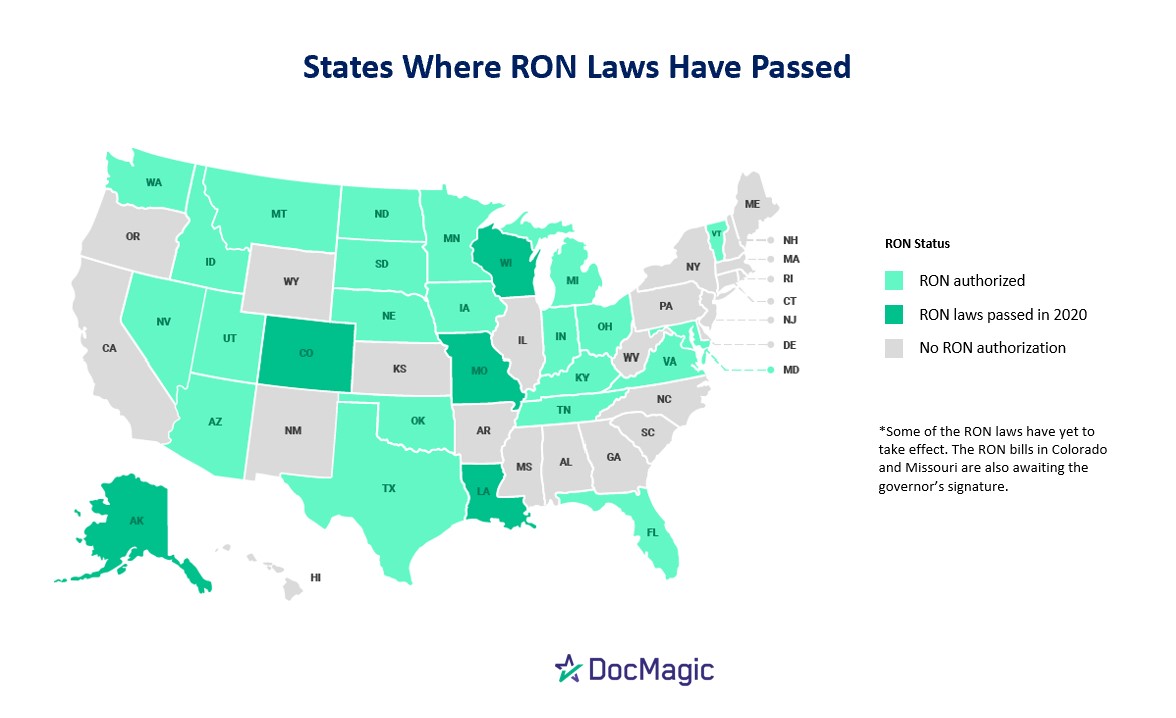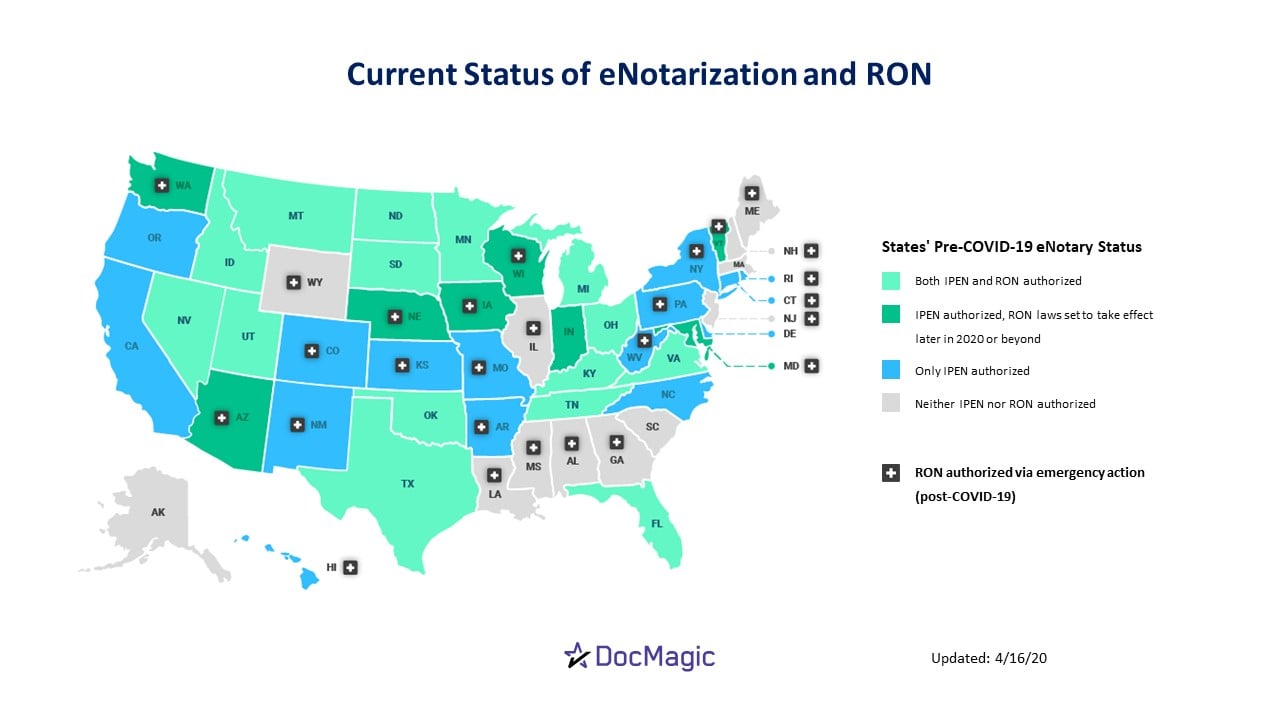County recorders, eRecording, and RON — by the numbers
At DocMagic’s May 27 webinar, “Road-Tested eClosing Strategies for Today,” Ben Sherman, president of real estate recording services firm Synrgo, shared some surprising facts and numbers about county recorders and electronic closings.
First, what's eRecording?
eRecording is a method of electronically delivering documents to the county recorder. So instead of mailing or FedEx-ing a document package, you’re scanning it and sending an electronic version to the courthouse via the Internet.
County recorders' ability to eRecord depends on their software systems. eRecording can be completed in minutes or hours, instead of the days or weeks that it takes to manually record a paper document.
What does this have to do with RON?
Any lender that wants to close a loan using remote online notarization (RON) has to find a jurisdiction that allows eRecording (except for specific papering-out exception we'll get to later). “Otherwise, you can’t get that document on record there,” Sherman said.
Now for the numbers…
The U.S. has 3,143 counties, but 3,590 recording jurisdictions.
Why the disparity? Certain states have more jurisdictions than they have counties. Connecticut, for example, only has eight counties but has 169 townships, and each township has its own clerk that handles the land record system.
As of May 31, there are 2,161 jurisdictions that eRecord.
These counties represent about 90% of the U.S. population, according to the Property Records Industry Association, which maintains an exhaustive list of all counties that eRecord.
Out of the jurisdictions that do eRecord, some still don’t accept electronic deeds.
Sherman says about 1,600 to 1,700 jurisdictions don’t accept electronic deeds, and that overlaps with some that do accept eRecordings. He calculates that about 58 million people, or 18% of the U.S. population, reside within these non-electronic deed-accepting jurisdictions.
13 states allow non-eRecording jurisdictions to paper out electronic documents.
As of July 1, there are 11 states that allow recording entities to print out and scan a paper version of an electronic document for recordation — including a RON document. They are: Florida, Idaho, Iowa, Kentucky, Minnesota, Montana, North Dakota, Ohio, Oklahoma, Tennessee, and Texas. By Oct. 1, Maryland and Washington will also allow papering out.
“That’s really important because that pertains to 452 counties in those 13 states,” Sherman said. “That’s a lot of recording jurisdictions that you can actually still do RON transactions.”
There are 3 key reasons why more county recorders aren’t accepting RON documents.
- Money: The software systems needed to manage eRecordings could cost a jurisdiction tens of thousands just to get started. “Believe it or not, in the United States we have counties that still write in a book,” Sherman said.
- Security: People worry that eRecording has more exposure to fraud than manually submitting a document, but Sherman says it's actually safer. Unlike paper, eRecording leaves a traceable audit trail—you can track who submitted the document, when it was submitted, from which organization, etc.
- Inertia: People may find it hard to change the way they've been operating, said Mike Lyon, executive vice president at Nexsys Technologies, at the May 27 webinar. “So, even though it’s super inefficient ... it’s what we’ve been doing forever and therefore we’re going to keep on doing it until somebody tells us to do it different,” he said.
With the onset of the pandemic, though, the landscape has changed dramatically in favor of eClosings and eRecordings. “That inertia is kind of gone now," Lyon said. "The ball is rolling and … it’s rolling at the county recorder’s office as well."
Related Content:




